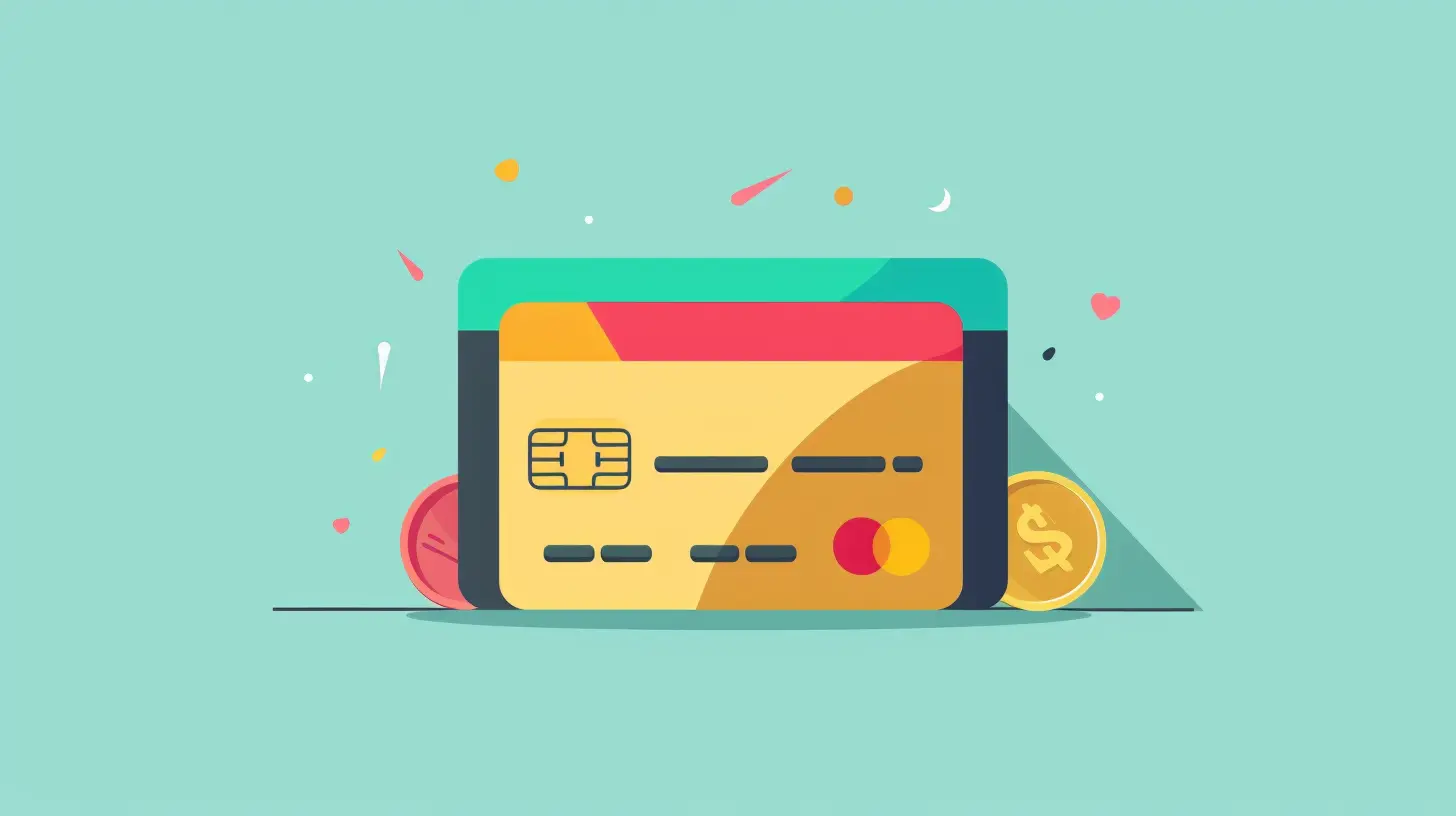Protecting Your Credit Score in Preparation for a Recession
19 May 2025
When economic uncertainty looms, one of the smartest financial moves you can make is safeguarding your credit score. Why? Because when a recession hits, banks tighten their lending policies, and a solid credit score can mean the difference between securing a loan or getting denied.
A recession can bring unexpected job losses, reduced income, and increasing financial pressure. If you’re not ready, your credit score could take a hit at the worst possible time. But don’t worry, with a little bit of planning and smart money habits, you can keep your credit score in great shape—no matter what the economy throws at you.
Let’s dive into the best strategies to protect your credit score before a recession strikes. 
Why Your Credit Score Matters More During a Recession
Your credit score is like a financial report card. It tells lenders how well you manage debt. When the economy is thriving, a mediocre credit score might not seem like a big deal. However, when a recession hits, lenders become much more cautious.Here’s why your credit score becomes even more critical when times get tough:
- Lenders Tighten Requirements – Banks and financial institutions start raising credit score requirements for loans, credit cards, and mortgages.
- Higher Interest Rates for Risky Borrowers – If your credit score isn’t great, you’ll get stuck with sky-high interest rates—making borrowing even more expensive.
- Limited Access to Credit – If your score drops too low, you may not qualify for new credit at all, which can be a major problem if you need emergency funds.
- Potential Employment Impact – Some employers check credit scores when hiring, especially for jobs in finance or management. A poor credit score could hurt your job prospects.
The bottom line? The stronger your credit score, the better your financial flexibility when times are tough. 
Steps to Protect Your Credit Score Before a Recession
Now that you know why your credit score is so important during a downturn, let's talk about what you can do to shield it from damage.
1. Pay Your Bills on Time—Every Time
This is rule number one when it comes to credit health. Your payment history makes up 35% of your credit score, so missing even one payment can cause a drop.- Set up automatic payments to ensure you never forget a bill.
- Create calendar reminders for due dates if auto-pay isn’t an option.
- Prioritize essentials like mortgages, car loans, and credit cards—late payments on these can hurt your score the most.
Even if money gets tight during a recession, making at least the minimum payment on time will help keep your score intact.
2. Keep Your Credit Utilization Low
Credit utilization is how much of your available credit you’re using. If you’re maxing out your credit cards, lenders see that as a red flag.- Aim to keep your credit utilization below 30%.
- If possible, pay off your balances in full each month.
- If you're close to the limit, consider making multiple payments throughout the month to lower your reportable utilization.
Keeping your credit utilization low shows lenders that you can manage debt responsibly, which is crucial during uncertain times.
3. Avoid Closing Old Credit Accounts
It might seem like a good idea to close old credit accounts, especially if you’re not using them. But think twice before doing so.Why? Because closing an account lowers your total available credit, which can increase your credit utilization ratio—potentially lowering your score.
- Keep old credit cards open, especially those with no annual fees.
- Use them occasionally for small purchases to keep the account active.
Length of credit history makes up 15% of your score, so the longer your accounts have been open, the better.
4. Be Cautious About Opening New Credit Accounts
While it’s tempting to open new credit cards or loans before an economic downturn, doing so can backfire.- Each credit inquiry can slightly lower your score.
- Too many new accounts at once can make you look like you’re financially struggling.
- Opening new credit lines increases your overall debt, which can be risky if your income becomes unstable.
Only apply for new credit if absolutely necessary and avoid unnecessary debt obligations before a recession.
5. Build an Emergency Fund to Reduce Dependence on Credit
One of the worst things you can do during a recession is rely too heavily on credit cards because you have no savings.- Aim to save at least 3-6 months' worth of expenses.
- Keep your emergency fund in a high-yield savings account for easy access.
- Use it only for true emergencies—like job loss, medical expenses, or urgent home repairs.
By having cash reserves, you won’t need to max out your credit cards or take out high-interest loans when times get tough.
6. Monitor Your Credit Report Regularly
Staying on top of your credit report helps you catch errors, fraud, or suspicious activity before they cause real damage.- Request a free credit report from AnnualCreditReport.com every 12 months.
- Look for mistakes like incorrect late payments or accounts you don’t recognize.
- Dispute any errors immediately to prevent unnecessary hits to your score.
Being proactive can prevent small issues from turning into major credit score setbacks.
7. Negotiate with Lenders If You’re Struggling
If you ever find yourself unable to make payments, don’t wait until your credit score plummets—reach out to your lender before you miss a payment.- Many lenders offer hardship programs during tough times.
- You may be able to negotiate lower interest rates, payment pauses, or extended repayment terms.
- Some credit card companies allow temporary forbearances, which won’t impact your score if handled correctly.
Lenders would rather work with you than have you default on your loan, so don’t be afraid to ask for help. 
Final Thoughts
Recessions are unpredictable, but your credit score doesn’t have to suffer when the economy takes a downturn. By staying proactive—paying bills on time, managing credit wisely, and building an emergency fund—you’ll be in a much stronger financial position when uncertainty strikes.Think of maintaining your credit score like maintaining your health. You don’t wait until you’re sick to start eating well and exercising, right? The same goes for your credit—protect it now so you’re prepared for whatever comes next.
Take these steps today, and when the next recession hits, you won’t just survive—you’ll thrive.
all images in this post were generated using AI tools
Category:
Recession PreparationAuthor:

Zavier Larsen
Discussion
rate this article
3 comments
Anna Sawyer
Essential tips for maintaining your credit score can safeguard your financial health during downturns.
May 23, 2025 at 11:29 AM

Zavier Larsen
Absolutely! Keeping your credit score healthy is vital for financial stability, especially in uncertain times. Regularly monitoring your credit report, paying bills on time, and managing debt wisely are key strategies.
Runehart Snow
In a recession, your credit score is your financial lifeline. Cultivating good habits now—like timely payments and reducing debt—will keep you afloat when the storm hits. Remember, it’s not just a number; it’s your ticket to future opportunities!
May 23, 2025 at 4:07 AM

Zavier Larsen
Thank you for highlighting the importance of maintaining a strong credit score! Building good habits now will indeed serve as a crucial safety net during challenging economic times.
Astra Carter
This article offers valuable insights on safeguarding credit scores during uncertain times. The tips provided are practical and timely, emphasizing the importance of proactive financial management. Thank you for sharing!
May 20, 2025 at 9:04 PM

Zavier Larsen
Thank you for your kind words! I'm glad you found the tips helpful for proactive financial management.



